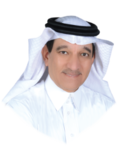A high-level Saudi delegation led by Foreign Minister Prince Faisal bin Farhan participated in the annual World Economic Forum this week, held under the theme “Collaboration for the Intelligent Age” in Davos, Switzerland.
This year, the forum’s meetings were held amid several global challenges, including slowing economic growth and geopolitical polarization.
The 2025 World Economic Outlook report, released by the International Monetary Fund, projected global economic growth to remain steady at 3.3 percent, 0.4 percentage points below the historical average of the first two decades of this century.
The World Economic Forum, established in 1971 as a not-for-profit foundation, provides a global, impartial platform for fostering connections between stakeholders to establish trust and promote cooperation and progress.
This year’s forum brought together world leaders to tackle key global and regional challenges, such as addressing geopolitical shocks, stimulating growth to improve living standards and managing a just, inclusive energy transition.
The Saudi delegation showcased the Kingdom’s economic achievements under Vision 2030.
Minister of Commerce Majid Al-Qasabi announced during a session on trade in services that the Kingdom’s trade in services reached $144 billion in 2023, reflecting an annual growth rate of 7 percent. This figure accounts for about 65 percent of the world’s gross domestic product and 60 percent of foreign investments.
He also highlighted the Kingdom’s significant investments in digital infrastructure, with $24.9 billion allocated to date and an additional $20 billion earmarked for future projects.
Finance Minister Mohammed Al-Jadaan, speaking in a session titled “Emerging Economies amid Shocks,” confirmed that private-sector investment grew by 54 percent as a share of the Kingdom’s GDP between 2017 and 2024.
He attributed this growth to a comprehensive economic structural transformation that has bolstered confidence in the Kingdom’s investment environment.
Minister of Tourism Ahmed Al-Khateeb highlighted that the Kingdom’s tourism sector was experiencing unprecedented expansion under Vision 2030 and the National Transformation Program, positioning Saudi Arabia as a leading global destination with an ambitious goal of attracting 150 million tourists annually.
Currently, the tourism sector contributes 5 percent to the Kingdom’s GDP, with projections to double to 10 percent by 2030. This growth is driven by strategic investments in transformative projects such as the Red Sea Project, Diriyah and Qiddiya, as well as numerous private-sector initiatives enhancing tourism across the Kingdom.
Minister of Investment Khalid Al-Falih emphasized the Kingdom’s significant economic transformation and its commitment to diversifying government revenues beyond oil. He highlighted that non-oil activities accounted for 50 percent of the Kingdom’s GDP in 2023, marking a historic milestone in its diversification efforts.
Minister of Economy and Planning Faisal Alibrahim said that non-oil GDP grew by 3.9 percent last year and was projected to grow by 4.8 percent in 2025 and 6.2 percent in 2026.
The Saudi delegation successfully highlighted the Kingdom’s economic achievements, driven by government efforts to realize Vision 2030 objectives through comprehensive fiscal and structural reforms.
The delegation also showcased the Kingdom’s progress in diversifying its economy and enhancing the performance of economic sectors to ensure fiscal sustainability.
The Saudi pavilion at the forum served as an excellent platform, bringing together global thought leaders to discuss and analyze the challenges, opportunities and solutions shaping the present and future of the global economy.
Global dialogues hosted at the pavilion explored the impact of the Kingdom’s social and economic transformation, as well as the unprecedented opportunities for growth, innovation and investment emerging under Saudi Vision 2030.
• Talat Zaki Hafiz is an economist and financial analyst. X: @TalatHafiz











